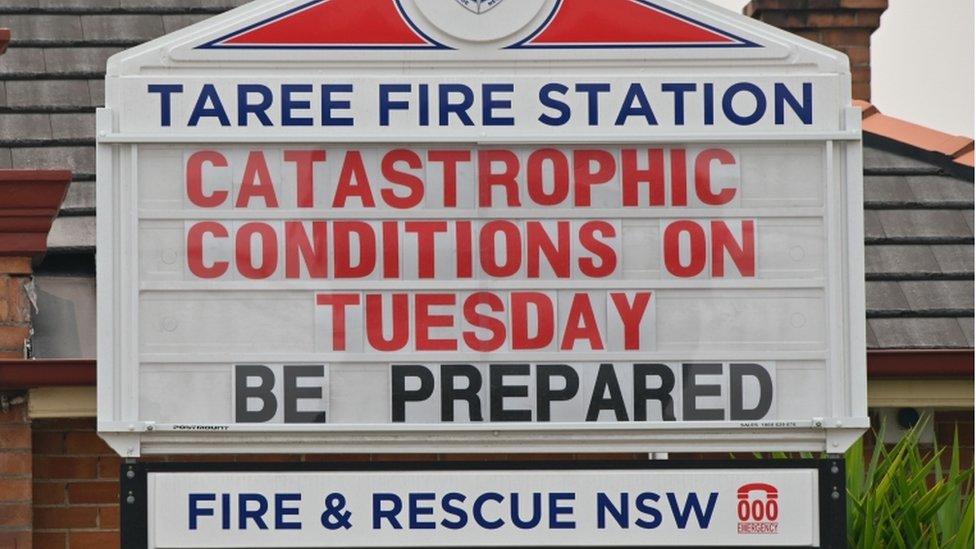Australia bushfires north of Sydney 'too big to put out'
- Published
'Sydney's mega fire is getting out of control'
A "mega blaze" raging across a 60km (37 mile) front north-west of Sydney cannot currently be put out, Australian fire officials have warned.
The fire across almost 300,000 hectares (1,150 sq miles) is an hour's drive from the nation's most-populous city.
People who cannot defend their property from approaching fires have been told they should leave immediately.
Since October, bushfires have killed six people and destroyed more than 700 homes across Australia.
The severity of the blazes so early in the fire season has caused alarm, and prompted calls for greater action to tackle climate change.
Fires have also raged across Queensland, Victoria, South Australia, Western Australia and Tasmania.
What's the latest on the ground?
Several fires have combined to form the Gospers Mountain mega blaze, which is more than 283,000 ha in size.
At 12:00 local time Saturday (01:00 GMT) 95 fires were burning, with half yet to be contained, the New South Wales Rural Fire Service (NSW RFS) tweeted., external
It said that more than 2,200 firefighters "were out in the field".
Allow X content?
This article contains content provided by X. We ask for your permission before anything is loaded, as they may be using cookies and other technologies. You may want to read X’s cookie policy, external and privacy policy, external before accepting. To view this content choose ‘accept and continue’.

At one point on Friday, nine fires had been raised to emergency level warnings, although these decreased markedly amid a brief respite in conditions later in the day.
The blazes north of Sydney were sending black fumes across the city, causing a rise in medical problems.
NSW RFS deputy commissioner, Rob Rogers told national broadcaster ABC: "We cannot stop these fires, they will just keep burning until conditions ease, and then we'll try to do what we can to contain them."
He said the 60km stretch from Hawkesbury to Singleton was "just fire that whole way".
Video footage from the Orangeville area showed firefighters running from a wall of fire and the Walkabout Wildlife Park has evacuated hundreds of animals.
Fire officials in Ingleburn warned: "If your property is not prepared for the bushfire season and you're not sure you are able or capable of defending your property if a fire approaches you need to leave straight away."
Firefighters from Canada were briefed in Sydney on Friday and will be deployed across New South Wales over the weekend, to be joined by teams from the US.
What's the outlook?
There was some respite overnight but another dry and windy day is predicted.
"They were able to strengthen a number of containment lines [overnight]... in preparation of some of those challenging conditions we are expecting this afternoon," RFS Chief Superintendent Ben Millington told the ABC.
But he added: "We're not out of the woods yet."
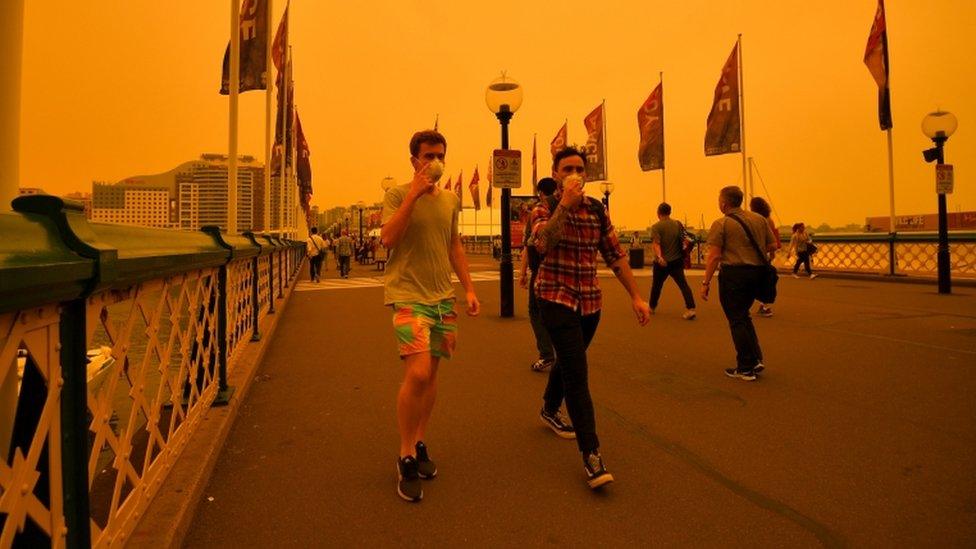
A smoky haze has enveloped much of Sydney
Tuesday is the next big concern, with temperatures inland of Sydney likely to reach above 40C (104F).
Some firefighters have expressed concern that volunteer numbers might not be enough and that there are inadequate water supplies.
The Bureau of Meteorology (BOM) said that "some fires were too big to put out" while the NSW RFS said late Friday the blazes would only be extinguished "when we get good rain".
Firefighters flee intense flames in Sydney, in a video shared by them to show the dangers of bushfires
Sydney may be blanketed in smoke for weeks, if not months.
Is this fire season particularly bad?
It hasn't come close to the fatalities of 2009, when nearly 200 people died, but the scale of the damage has been huge.
More than 1.6 million hectares of land have burned in New South Wales alone.
The season has hit earlier than normal and has been exacerbated by drought conditions.
RFS Commissioner Shane Fitzsimmons said: "There is an absolute lack of moisture in the soil, a lack of moisture in the vegetation... you are seeing fires started very easily and they are spreading extremely quickly, and they are burning ridiculously intensely."
Is climate change to blame?
The BOM says that climate change has led to an increase in extreme heat events, external and raised the severity of other natural disasters, such as drought.


Last week, the bureau noted that NSW had endured its driest spring season on record. It also warned that Australia's coming summer was predicted to bring similar conditions to last year's - the nation's hottest summer on record.
The government has been criticised over its efforts to address climate change. PM Scott Morrison has dismissed accusations linking the crisis to his government's policies.
Hundreds of bushfire survivors and farmers converged on the nation's capital, Canberra, this week in protest. One woman displayed the charred remains of her home outside Parliament - on which she had written: "Morrison, your climate crisis destroyed my home."
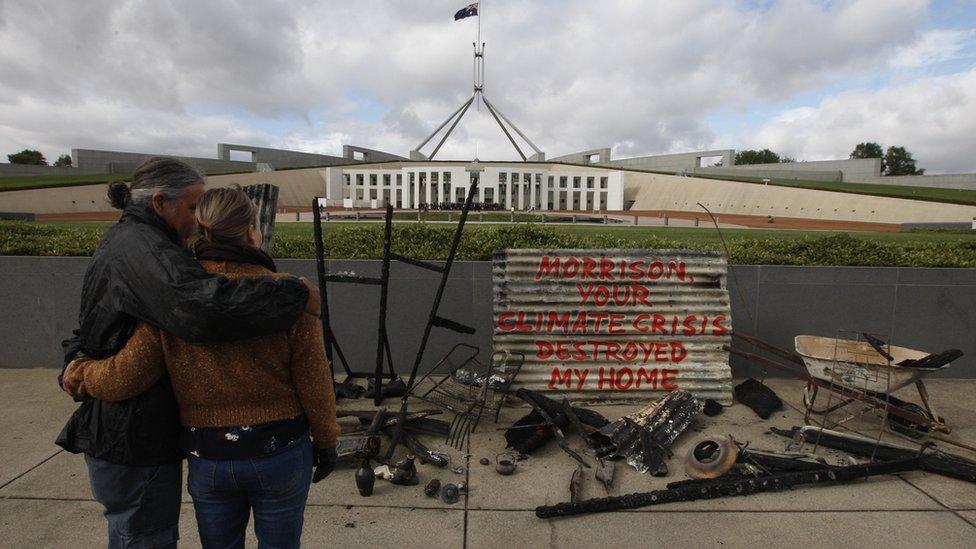
Melinda Plesman called for the government to take action on climate change

Have you been affected by the Australian bushfires? If it is safe to do so get in touch with us at haveyoursay@bbc.co.uk, external.
Please include a contact number if you are willing to speak to a BBC journalist. You can also contact us in the following ways:
WhatsApp: +44 7756 165803, external
Tweet: @BBC_HaveYourSay, external
Send pictures/video to yourpics@bbc.co.uk, external
Text an SMS or MMS to 61124 or +44 7624 800 100
- Published7 December 2019
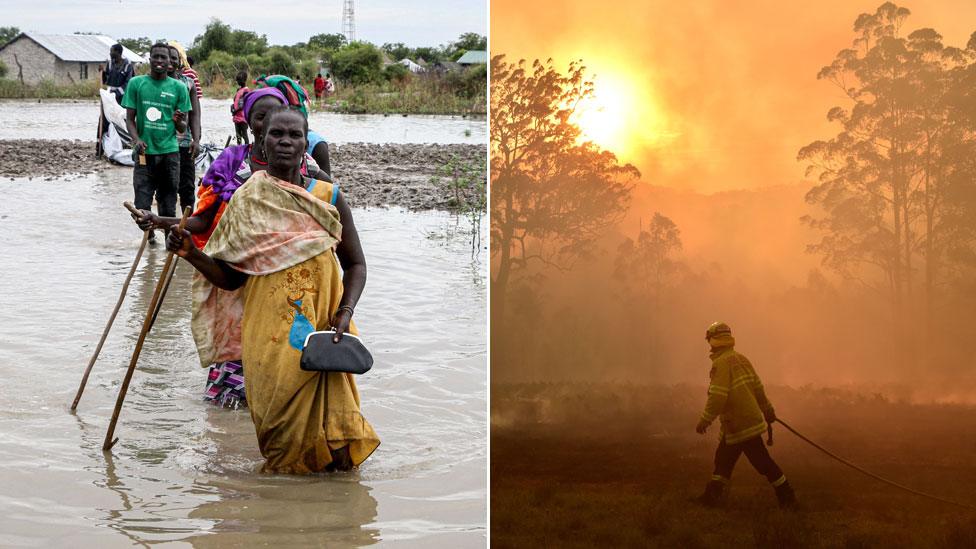
- Published5 December 2019
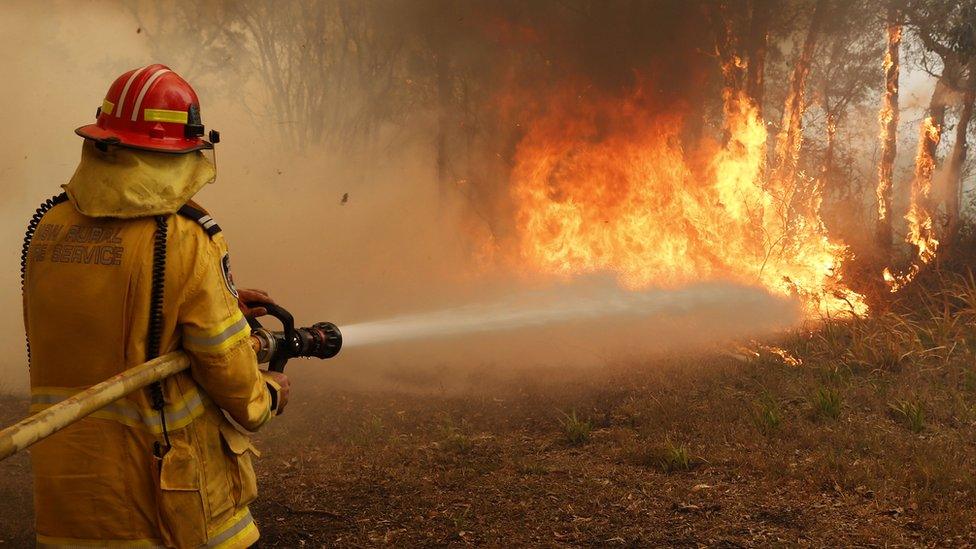
- Published19 November 2019
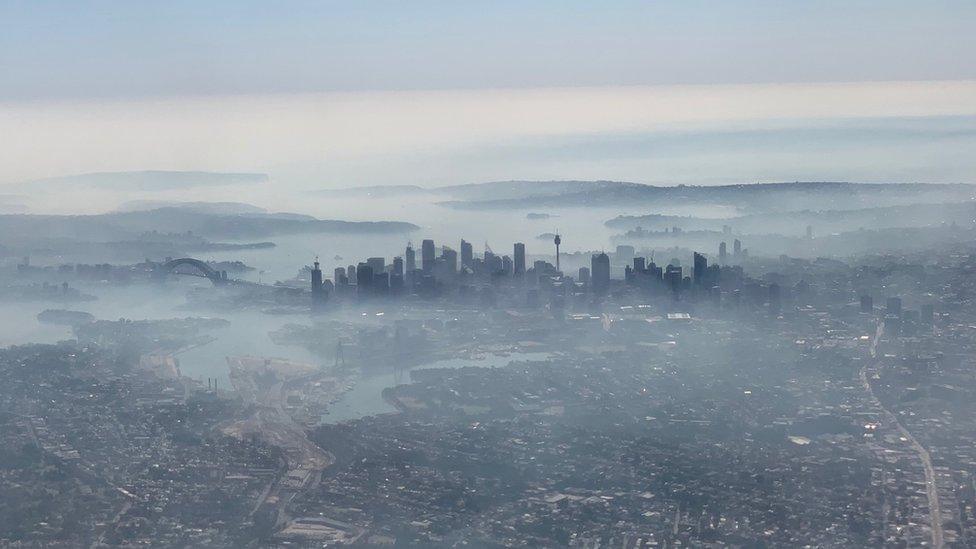
- Published13 November 2019
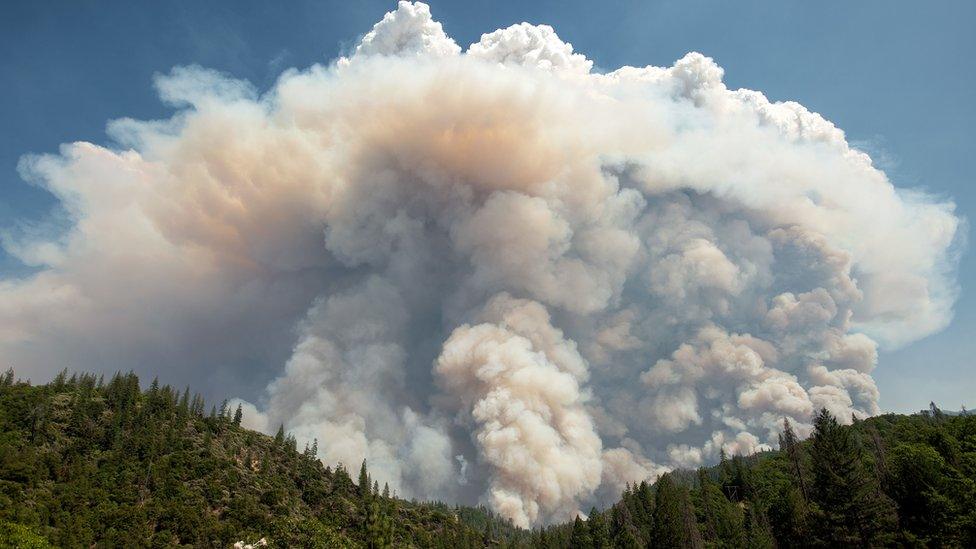
- Published14 November 2019
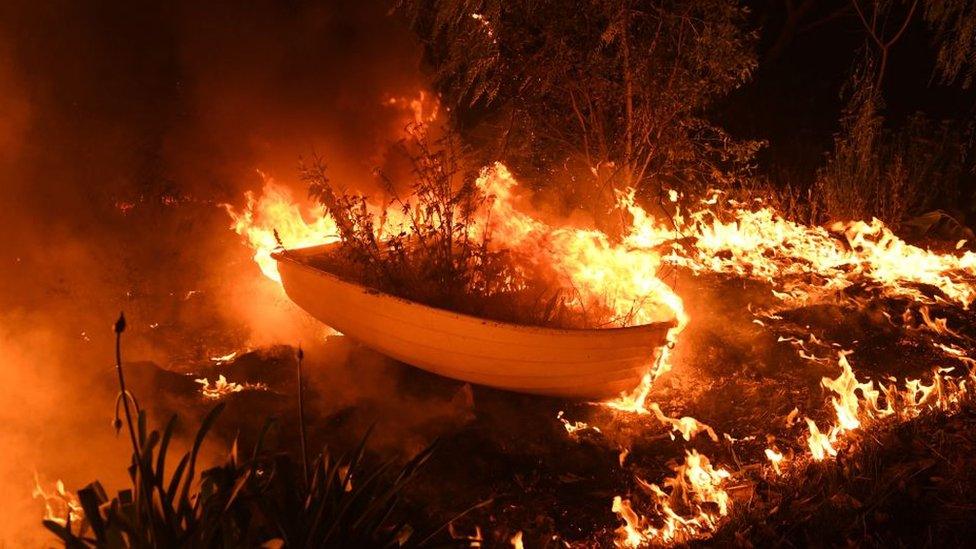
- Published11 November 2019
